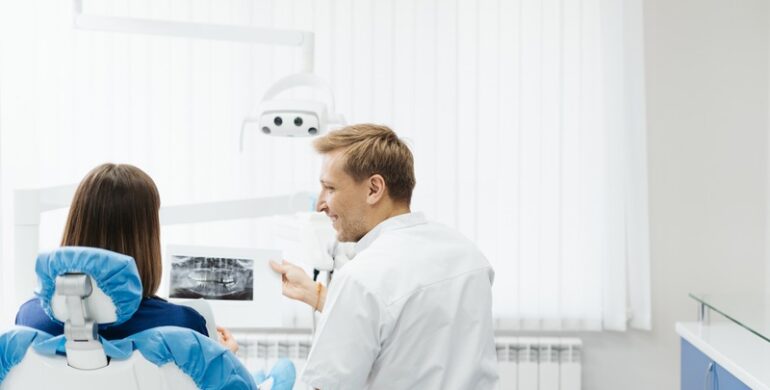
Let’s talk about dental procedures and how to ensure they are carried out safely. Maintaining your oral health is crucial, but any form of medical procedure comes with risks. Fortunately, dental professionals follow strict protocols to minimize potential hazards. From routine teeth cleanings to more complex dental interventions, precautions are in place to ensure that patients have a safe and comfortable experience.
Why Safety Matters in Dental Procedures
Oral health is a significant component of your overall health. Dental procedures, whether they’re preventive or corrective, need to be performed with the utmost safety to avoid complications. The goal is not just to fix or clean your teeth, but to do so in a manner that prevents infections, minimizes discomfort, and promotes quicker recovery.
The Role of Training and Expertise
Dentists and dental hygienists are trained extensively to ensure both skill and safety for patients. Their education involves several years of rigorous learning, focusing on technical abilities and excellent patient care. Beyond initial training, they engage in ongoing education to keep up-to-date with new dental practices and technologies. This ensures that they continue to provide safe, effective, and current treatments. Their qualifications and experience are essential, enhancing the effectiveness of physical safety measures in a dental setting, and fostering trust and comfort for patients during their visits.
Use of Sterilized Instruments
To keep patients safe in dental clinics, it’s vital to sterilize tools and equipment. After each use, all instruments undergo thorough cleaning. Clinics use advanced machines like autoclaves, which use high pressure and steam to destroy any remaining germs or viruses. This strict process helps prevent infections and ensures a hygienic environment for every dental procedure.
Personal Protective Equipment (PPE)
Personal Protective Equipment (PPE) is crucial for safety in dental procedures. Dentists and their assistants wear gloves, masks, eye protection, and face shields to protect everyone involved. This equipment shields against infections and ensures a clean environment. PPE is either disposable or can be sterilized, maintaining high hygiene standards. This practice is essential to preventing the spread of germs and maintaining the health of both the patient and the dental staff, ensuring that dental care is both safe and effective for everyone involved.
Thorough Patient Assessments
-
Reviewing the patient’s medical history
-
Understanding any underlying health conditions
-
Taking X-rays to look for hidden issues
A thorough assessment of the patient is essential before any dental procedure. This assessment helps the dental team tailor the procedure to the patient’s specific needs and minimize any risks involved.
Utilizing Modern Technology
-
Digital imaging for precise diagnoses
-
Lasers offering less invasive treatments
Technological advances offer new methods to enhance the safety of dental procedures.
Top-Quality Dental Materials
-
Biocompatible materials for allergies
-
Durability for long-term success
The materials used in dental procedures are also chosen with safety in mind. Whether you’re receiving top dental crowns or fillings, dental professionals select biocompatible materials that are less likely to cause allergic reactions.
Effective Communication is Key
-
Encourage patients to share concerns
-
The dental team provides comprehensive information
Communication between the dental team and the patient is fundamental to ensuring safety.
Choosing the Right Dental Office
A professional dental office is well-equipped with the latest technology and follows strict sterilization protocols. When choosing a dental office, look for certifications, patient reviews, and recommendations. It’s crucial to select a dental office that demonstrates a commitment to patient safety and comfort.
Pain Management and Anesthesia
-
Local anesthetics for minimal discomfort
-
Sedation options tailored to comfort levels
Pain management is an integral part of dental procedures.
Post-Procedure Care
-
Tips on dietary restrictions
-
Pain management and oral hygiene practices
Once a dental procedure is completed, post-procedure care is crucial for recovery and the prevention of complications.
The Value of Regular Check-Ups
Regular dental check-ups are essential for the early detection and prevention of potential problems. Through routine examinations, dentists can pick up issues before they become significant concerns. These check-ups often include dental teeth cleaning as a preventative measure to ensure oral hygiene is maintained at an optimal level.
Emergency Preparedness
-
Protocols for handling emergencies
-
Quick and effective response to safeguard health
While every precaution is taken to avoid emergencies, it’s essential to be prepared for unexpected situations.
Feedback and Continuous Improvement
-
Implementation of patient surveys
-
Continuous enhancement of safety protocols
Patient feedback is a valuable tool for dental offices looking to improve their services continuously. This practice helps clinics advance their safety protocols and enhances the patient experience over time.
Final Thoughts
Ensuring the safety of dental procedures is a comprehensive process that encompasses various essential elements, from stringent sterilization protocols to the use of advanced technologies and biocompatible materials. The expertise and continuous education of dental professionals play a crucial role in maintaining high standards of care, while personal protective equipment and thorough patient assessments add additional layers of safety.
Effective communication between the dental team and patients further enhances trust and understanding, contributing to better outcomes. By prioritizing these safety measures, dental offices not only aim to deliver optimal oral health care but also ensure a comfortable and secure experience for every patient.